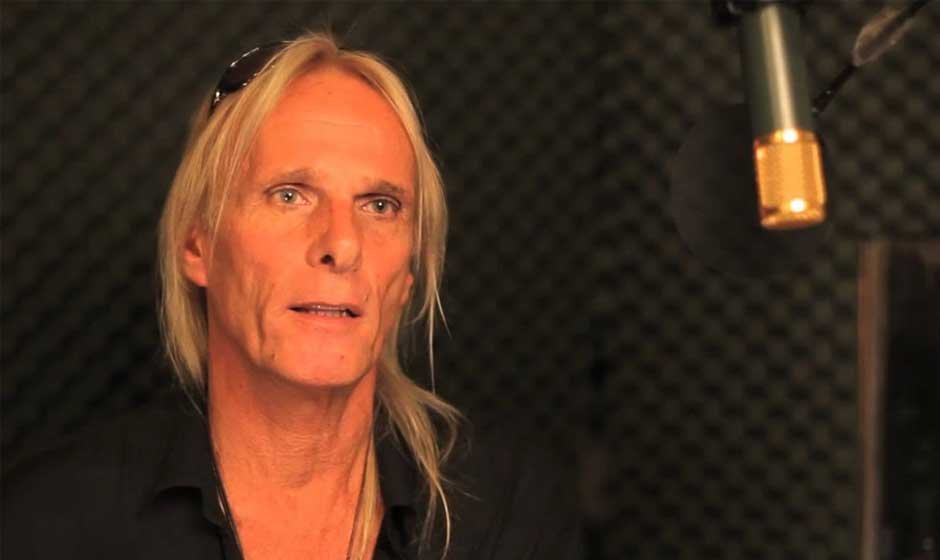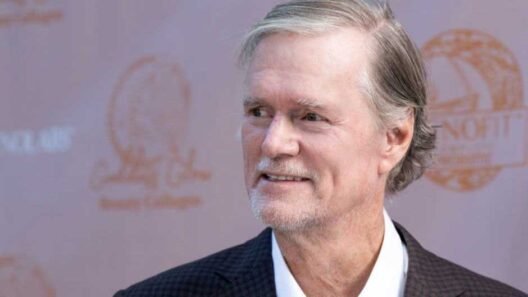More Than Just Michael Bolton’s Brother
Most people know Michael Bolton as the Grammy-winning powerhouse behind hits like “When a Man Loves a Woman.” But fewer know about Orrin Bolotin, the older brother whose wild adventures and business savvy helped launch Michael’s career. Orrin’s story isn’t just about being related to a famous singer – it’s about a guy who lived life like he was writing his own rock opera.
Born August 22, 1949, Orrin packed more adventure into his 73 years than most people could imagine. From hitchhiking across Europe as a teenager to standing in the crowd at Woodstock, from getting stranded in India to masterminding one of music’s most clever marketing campaigns, Orrin Bolotin was never one to take the easy road.
When he passed away on March 2, 2023, Michael Bolton’s tribute said it all: “My brother, my mentor, my introduction to my love of music.” That’s quite a legacy for someone many people had never heard of.
Growing Up Musical in New Haven
The Bolotin household in Westville, New Haven, was where it all started. Their mom, Helen, was the family’s musical heart, filling the house with everything from Broadway show tunes to gospel music. While other kids their age were just getting through Hebrew school, Orrin and Michael were belting out those prayers like they were auditioning for something.
Their dad, George Bolotin, was a local politician – what Orrin later called “a machine politician” who still believed compromise could change the world. That political background would come in handy later when Orrin needed to navigate the music business. The family name was actually longer back then, but they shortened it to Bolotin before the boys eventually became “Bolton” for their careers.
Growing up with Michael and their sister Sandra (who played clarinet), Orrin learned early that music wasn’t just background noise in their house – it was the main event. This musical foundation shaped both brothers, though they’d take very different paths to get there.
The Counterculture Years
At 15, most kids are worried about homework. Orrin Bolotin was hitchhiking from Amsterdam to Italy, pretending to be Canadian to avoid trouble. That’s just how he rolled – always looking for the next adventure, the next experience that would teach him something about the world.
By 19, he was right in the thick of the late ’60s counterculture scene. He got his toe broken by a concussion grenade during protests in Berkeley – talk about commitment to a cause. But the real highlight of that year was Woodstock, where he managed to get close enough to the stage to really feel the music of Hendrix and Santana.
After Woodstock, with those legendary performances still ringing in his ears, Orrin headed to India for what you might call a spiritual journey. Things got interesting in 1973 when he found himself in Afghanistan during some serious political chaos. He had to escape Kabul in the middle of the night, then got stuck in New Delhi without money for almost a year. These weren’t vacation mishaps – they were life-changing experiences that shaped who Orrin became.
Finding His Musical Voice
Music was always part of Orrin’s story. At 14, he joined his first band, “the Nomadz,” while Michael was starting his own group called “Joy.” Even then, you could see they were both heading toward music, just taking different routes to get there.
When Orrin was 19 and living in Amsterdam, he became the lead singer for “Jelly Roll Jam.” This wasn’t just a hobby – it was serious musical development in the international scene. He was learning how to perform, how to connect with audiences, and how different cultures approached music.
But when he came back from his travels in India and Afghanistan, everything changed. He was physically worn down but mentally expanded by everything he’d experienced. That’s when he found Michael still grinding away at his music career, talented as hell but not getting the breaks he deserved. Orrin made a decision that would change both their lives: he’d put his own music on the back burner and focus on getting Michael the success he knew his brother could achieve.
The Marketing Genius Behind Michael Bolton
What Orrin did next was pure genius, mixing the political organizing skills he’d learned from his dad with some seriously creative thinking. He didn’t just become Michael’s manager – he created an entire ecosystem for success. Three companies: management, production, and publishing. This wasn’t amateur hour.
Getting that first record deal meant visiting 24 different labels and hearing “no” 23 times. But Orrin kept pushing until RCA Records finally said yes to Michael (who was still using the Bolotin name at the time). That kind of persistence doesn’t come from nowhere – it comes from absolute belief in what you’re selling.
The real stroke of genius was Orrin’s fan-building strategy. When Michael was opening for Bob Seger & The Silver Bullet Band, Orrin hired attractive women at each tour stop to hand out special invitation cards. Kids would line up to meet this relatively unknown singer named Michael Bolton, filling out forms with their contact information. Orrin collected about 5,000 of these forms, creating a database that he’d activate every time Michael came back to town. Suddenly, there were crowds waiting for Michael wherever he went, creating the illusion of celebrity before the real celebrity kicked in.
Orrin’s Own Musical Journey
Once Michael’s career was rolling, Orrin got back to his own music. He started Rock N Hood Records and, like Michael, eventually changed his professional name to Bolton. In 2011, he released “Livin’ Like A Man,” an album that showed his own musical style and philosophy. The 2013 single “Ain’t About Love” proved he was still creating and evolving as an artist.
The funny thing was, Orrin got mistaken for Michael all the time – something he called being “Michael-waved.” People would come up to him with sympathy, thinking it must be tough to be the unsuccessful brother. But Orrin never saw it that way. He wasn’t competing with Michael; he was living his own version of a musical life.
His approach was different from the traditional music industry playbook. While Michael focused everything on becoming a star, Orrin was more interested in the whole experience – the travel, the spiritual growth, the causes he believed in. Music was part of it, but not the only part.
A Different Kind of Success
Orrin’s philosophy was pretty simple: there’s more to life than just making it big. While Michael was dedicating everything to becoming a performer, Orrin was committed to what he called “worldliness, spiritual fulfillment, and advocating for causes.” It wasn’t that one approach was better than the other – they were just different ways of living a meaningful life.
He preferred making music to managing it, which is why he stepped back once Michael’s career was established. Orrin had done his job, proved his point, and now it was time to let Michael’s talent do the talking. That takes a special kind of person – someone secure enough in their own worth to celebrate someone else’s success without feeling diminished by it.
People who knew Orrin described his mind as wandering “exciting, eccentric paths,” and his life story backs that up completely. From teenage adventures in Europe to spiritual journeys in Asia, from counterculture movements to innovative marketing strategies, Orrin consistently chose the road less traveled.
The Final Chapter
Even in his later years, Orrin kept creating. He was working on a new EP project, proving that age hadn’t dimmed his creative fire. Music remained a constant throughout his life, even as everything else changed around him.
When Orrin died on March 2, 2023, at 73, the music world lost someone special. He’s buried at Workmens Circle Association Cemetery in West Haven, Connecticut, with a gravestone that says it all: “Loving Father, Brother, Singer And Songwriter.”
Michael’s tribute captured what Orrin meant to him: “We’ve shared songs, sports, long hair and the stage. Forever the traveler, I know your music guides you into your next journey.” Those words show the deep bond between the brothers and acknowledge Orrin’s role in shaping Michael’s musical journey.
Orrin Bolotin represents something important – the idea that success comes in many forms. He showed that you can make a huge impact without being the one in the spotlight. Sometimes the greatest contribution is helping someone else achieve their dreams while staying true to your own vision of what makes life worth living. His story reminds us that behind every successful artist, there are often people whose contributions deserve recognition, even if they never sought the fame for themselves.













